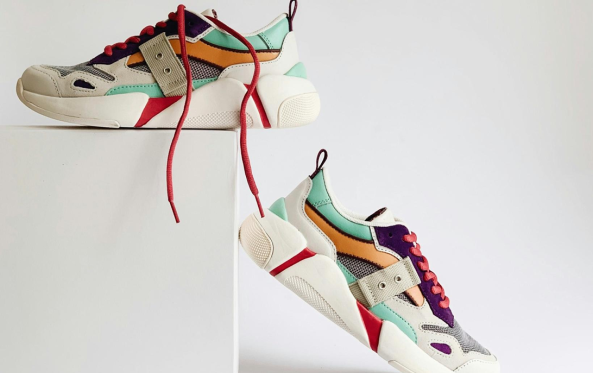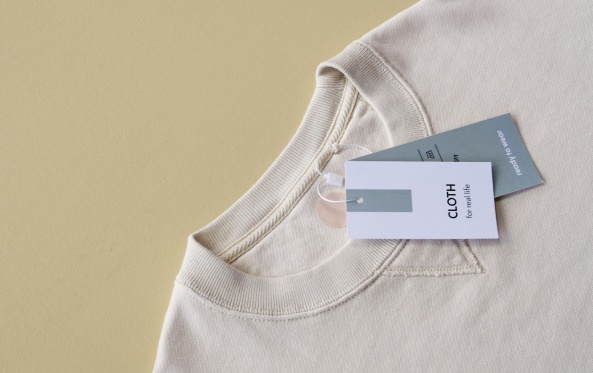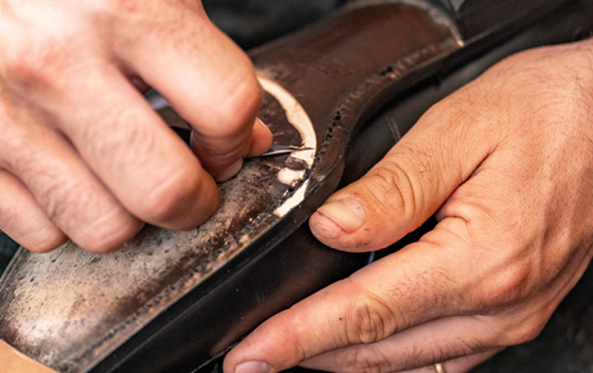
Reports and studies
Results, studies and detailed measurement figures for the industry.
Studies
Synthesis of the French second hand Clothing textiles in 2024
Overview of the French second-hand CHF market 2024
Summary of the Thermomechanical Recycling of Textiles
State of the art of recycling solutions for shoe soles in Europe
A study conducted by Refashion and CETIA to provide a state-of-the-art overview of recycling solutions for non-reusable used shoe soles in Europe – July 2025
Overview of the French second-hand market in 2023
A study carried out by Refashion to provide an accurate overview of the second-hand market - June 2025
Environmental assessment summary for the sector in 2024
Study on the environmental impacts of the used CHF EPR sector from household consumption – June 2025
Environmental assessment summary for the sector in 2023
Study on the environmental impacts of the used CHF EPR sector from household consumption – June 2025
Study on recycling disruptors and facilitators in Clothing, Household linen and Footwear
A study conducted by Refashion with the support of the research firm Terra – February 2025.
Summary of the Mechanical Recycling of Textiles
Summary by Refashion - April 2025
Best practice guide on textiles design for recycling
Refashion - 2025
Best practice guide on footwear design for recycling
Refashion - 2025
Summary of the Chemical Recycling of Textiles
Summary by Refashion - June 2024
Characterisation study of the incoming and outgoing textile waste streams from sorting facilities
A study conducted by Refashion with the assistance of the consulting firm Terra - April 2023
Synthesis on optical sorting and recognition technologies, sorting and disassembly of textile materials
A study conducted by Refashion with the assistance of the consulting firm Terra - April 2023
What does the future hold for the SFR sector in France?
Refashion's Regenerative Solutions Division - June 2022
Study on optical sorting and recognition technologies for textiles on a European scale
Terra for Eco TLC - February 2020
Summary of the environmental analysis of the CHF industry
RDC Environment : Study conducted on behalf of Eco TLC - December 2017
Characterisation of used CHF entering sorting facilities and of the waste resulting from sorting
Study conducted by Eco TLC under the ADEME agreement and with the assistance of the TERRA SA consulting firm - October 2014
Study on the factors disrupting and facilitating textile and household linen recycling
Report drafted by the French Ecole Nationale Supérieure des Arts et Industries Textiles - July 2014
Project Results
SensorHUB, a CETIA x Refashion innovation to boost the sorting and recycling of CHF – May 2025
Le Maillot Infini project closure report – March 2025 (VF)
Recyclage chimique de vêtements de sport usagés polyester pour créer un nouveau fil de polyester et in fine de nouveaux vêtements de sport. Acteur Recycle de Refashion : NOLT
TexID project closure report – July 2024
Developing an automated sorting pilot line for textile materials recognition though NIR spectroscopy to the industrial scale. Refashion Recycle platform’s stakeholder: Soex
Mistery project closure report – December 2023
The Mistery project, led by the CEA in partnership with the Boer Group, The Aalto University and Horiba, aimed to prototype the use of multispectral optical sensors for the characterization of used household textiles.
Zapateko II project closure report – March 2023
The Zapateko II project, led by the ERAM group in partnership with the CETIA and winner of the 2020 Challenge Innovation (Refashion’s call for projects), has led to the conception of a report presenting the issues and constraints encountered in the development of a demonstrator for dismantling non-reusable footwear by automatic sorting and assisted tearing. It also reports on the conclusions of the sole reuse study and the first environmental impact analyses. Refashion Recycle platform’s stakeholders: ERAM Group and CETIA
Thematic notes
Summary of the Thermomechanical Recycling of Textiles – September 2025
This document presents an in-depth overview of thermomechanical textile recycling and serves as a guide for stakeholders to better understand the current applications, constraints, and perspectives related to the thermomechanical recycling pathway. It includes: an analysis of thermoplastic fibers the main steps of thermomechanical recycling the applications and challenges of this process
Summary of the Mechanical Recycling of Textiles – April 2025
This document provides a comprehensive overview of mechanical recycling route for textiles and serves as a guide for stakeholders to understand current applications, limitations, and opportunities in textile mechanical recycling. It includes : an overview of the mechanical recycling processes the applications of these processes the current challenges of this recycling route
Summary of the Chemical Recycling of Textiles
Summary by Refashion - June 2024
Introductory note – The Construction Industry: a promising market for used textiles and footwear recycling – Sept 2023
Note presenting the synergies between the Construction and Textiles & Footwear sectors.
Footwear Workshop Summary Note – December 2022
This workshop provided an opportunity to establish the state of the art for the recycling of non-reusable footwear in France, by bringing together representative players from the entire value chain: sorting operators, technical centres, recyclers and marketers. The dismantling of shoes and the recovery of components are among the many constraints to be lifted in order to recycle shoes, even before talking about the industrialisation of recycling. Refashion Recyle Platform’s Stakeholders: CETIA, CTC, Fédération Française de la Chaussure, Groupe ERAM, Revalorem et Salomon
Polyamide Workshop Summary Note – July 2022 (ONLY IN FRENCH)
This workshop brought together stakeholders around a common topic: polyamide recycling. Its development seems today to be slowed down by the viability of the economic model more than by the recycling technology itself. Although there are many other constraints which need to be removed such as the conponents mix in the textiles. Refashion Recyle Platform’s Stakeholders: CETI, Cycl-add, Infinite Athletic, Chamatex, Emmaus Vertex and Etam
Polyester Workshop Summary Note – May 2022 (ONLY IN FRENCH)
This workshop takes makes of the current state of polyester fibre recycling in France, thanks to constructive exchanges between sorting operators, technical centres, recyclers and marketers, in closed and open loops. In particular, it appears that the sorting and unravelling stages are decisive before going any further in the recycling process. Obstacles to the correct identification of textile materials persist: conponents mix, the presence in small proportions of some materials (elastane), the use of certain pigments or the 3D structure (multilayers, coating, etc.). Refashion Recyle Platform’s Stakeholders: Buitex, Brochier technologies, Cetelor, Rossignol, Michelin, Mapea, Ain Fibres and Synergies TLC



